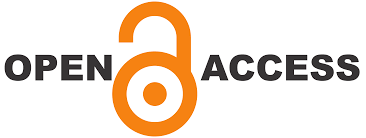Developing and Evaluating Digital Learning Integration to Improve Students’ Digital Literacy in High School Biology
Keywords:
Digital Literacy, Digital Learning Integration, Biology Education, High School Students, Educational TechnologyAbstract
The rapid advancement of information technology requires students to develop strong digital literacy, particularly in subjects like Biology that increasingly utilize digital media. This study aims to develop and evaluate a digital learning integration model designed to improve high school students’ digital literacy in Biology learning. Using a Research and Development (R&D) approach, the model was created and tested on 142 eleventh-grade students at SMAN Pakusari. Data collection involved a validated digital literacy questionnaire, Biology comprehension tests, and classroom observations. Results showed that the digital learning integration model was successfully implemented and well-received by both students and teachers. Statistical analysis revealed a significant improvement in students’ digital literacy, with an average score of 77%, and 95% of students classified as highly proficient. In addition, students demonstrated enhanced understanding of Biology concepts following the intervention. These findings indicate that integrating digital learning effectively enhances digital literacy while simultaneously improving subject matter comprehension. The study recommends adopting this model as an innovative approach in Biology education to equip students with essential digital skills and better prepare them for the demands of the digital era.
Downloads
References
Alfia, N., Sumardi, S., & Kristina, D. (2021). Integrating digital literacy into efl classroom: a study of the theory of planned behavior. JPI (Jurnal Pendidikan Indonesia), 10(3). https://doi.org/10.23887/jpi-undiksha.v10i3.29812
Alsowat, H. H. (2022). Hybrid Learning or Virtual Learning? Effects on Students’ Essay Writing and Digital Literacy. Journal of Language Teaching and Research, 13(4). https://doi.org/10.17507/jltr.1304.20
Amin, A. Muh., Adiansyah, R., & Hujjatusnaini, N. (2023). The Contribution of Communication and Digital Literacy Skills to Critical Thinking. Jurnal Pendidikan Sains Indonesia, 11(3). https://doi.org/10.24815/jpsi.v11i3.30838
Cahya, U. D., Simarmata, J., Iwan, Suleman, N., Nisa, K., Nasbey, H., Muharlisiani, L. T., Karwanto, Putri, M. D., Chamidah, D., Pagiling, S. L., & Rahmadani, E. (2023). Inovasi pembelajaran berbasis digital abad 21. In Penerbit Yayasan Kita Menulis.
Caneva, C., & Pulfrey, C. (2023). Digital Capacity Building in Schools: Strategies, Challenges, and Outcomes. Médiations et Médiatisations, 13. https://doi.org/10.52358/mm.vi13.394
De Vega, N., & Rahayu. (2023). Enhancing English Learning: Self-Determination in Indonesia Digital Classrooms. Inspiring: English Education Journal, 6(2). https://doi.org/10.35905/inspiring.v6i2.6611
Edgel, T., McCarstle, S., Reyes, N., & Leibold, A. (2021). A Professional Development Workshop Using Digital Literacy to Build Students’ Self‐Efficacy and Sense of Belonging on Campus. Journal of College Academic Support Programs, 3(2). https://doi.org/10.36896/3.2pp2
Fatqurhohman, F. (2025). Transformasi Kepemimpinan Pendidikan Era VUCA: Strategi Menuju Institusi Unggul dan Adaptif. CV. Ihsan Cahaya Pustaka. ihsancahayapustaka.id
Fatqurhohman, F., & Huda, H. (2025). Implementation of Articulate Storyline Learning Media in Cultivating Students’ Character in The Digital Era. AULADUNA: Jurnal Pendidikan Dasar Islam, 12(1), 11–22. https://doi.org/10.24252/auladuna.v12i1a2.2025
Frison, D. (2023). Higher Education in Post-Covid19: The Digital Transformation of Work-Integrated Learning Programmes. https://doi.org/10.36253/979-12-215-0151-3.22
Hafiza, N., Rahayu, H. M., & Pasah Kahar, A. (2022). The Relationship Between Digital Literacy and Learning Outcomes in Biology Learning for Students. Jurnal Penelitian Pendidikan IPA, 8(1). https://doi.org/10.29303/jppipa.v8i1.1067
Hafizah, N. (2023). Media Pembelajaran Digital Generasi Alpha Era Society 5.0 Pada Kurikulum Merdeka. Al-Madrasah: Jurnal Pendidikan Madrasah Ibtidaiyah, 7(4). https://doi.org/10.35931/am.v7i4.2699
Hannigan, C., Alonzo, D., & Oo, C. Z. (2022). Student assessment literacy: indicators and domains from the literature. Assessment in Education: Principles, Policy and Practice, 29(4). https://doi.org/10.1080/0969594X.2022.2121911
Heryani, A., Pebriyanti, N., Rustini, T., & Wahyuningsih, Y. (2022). Peran Media Pembelajaran Berbasis Teknologi Dalam Meningkatkan Literasi Digital Pada Pembelajaran IPS di SD Kelas Tinggi. JURNAL PENDIDIKAN, 31(1). https://doi.org/10.32585/jp.v31i1.1977
Huang, Z., Fey, M., Liu, C., Beysel, E., Xu, X., & Brecher, C. (2023). Hybrid learning-based digital twin for manufacturing process: Modeling framework and implementation. Robotics and Computer-Integrated Manufacturing, 82. https://doi.org/10.1016/j.rcim.2023.102545
Indah, R. N., Toyyibah, Budhiningrum, A. S., & Afifi, N. (2022). The research competence, critical thinking skills and digital literacy of indonesian efl students. Journal of Language Teaching and Research, 13(2). https://doi.org/10.17507/jltr.1302.11
Khotimah, H., & Mangkurat, U. L. (2022). Strategi Pembelajaran Di Abad Ke- 21. OSF Preprints, 1980.
Kim, D., & Ryoo, D. (2023). Learning Techniques Using Study With Me: Focus on Motivational Orientations, Learning Competency, and Digital Literacy. IEEE Access, 11. https://doi.org/10.1109/ACCESS.2023.3312555
Kugler, E., & Kárpáti, A. (2023). Teaching Mathematics through art: Developing spatial skills and digital literacy of children with learning challenges through visual arts education. In Arts-Based Interventions and Social Change in Europe. https://doi.org/10.4324/9781003376927-6
Lim, F. V., & Tan-Chia, L. (2022). Multimodal Literacy Learning with Digital Texts. In Designing Learning for Multimodal Literacy. https://doi.org/10.4324/9781003258513-4
Maharani, D. P., & Irsadi, A. (2023). The Development of Mushroom Interactive Student Worksheet Based on Discovery Learning as Teaching Materials for Class X High School Students. Journal of Biology Education, 12(1). https://doi.org/10.15294/jbe.v12i1.59760
Molin, L., & Godhe, A. L. (2020). Students’ critical analyses of prominent perspectives in a digital multimodal text. Nordic Journal of Digital Literacy, 15(3). https://doi.org/10.18261/issn.1891-943x-2020-03-02
Nopitasari, Banu Setyo Adi, Sugeng Riyanto, & Rahayu Condro Murti. (2023). Digital Literacy: Perceptions of Primary School Teacher Education Students. Jurnal Ilmiah Sekolah Dasar, 7(1). https://doi.org/10.23887/jisd.v7i1.48400
Nurhasanah, Z., Widodo, A., & Riandi, R. (2019). Augmented reality to facilitate students’ biology mastering concepts and digital literacy. JPBI (Jurnal Pendidikan Biologi Indonesia), 5(3). https://doi.org/10.22219/jpbi.v5i3.9694
Rosyadi, A. R., Afandi, A., & Wahyuni, E. S. (2022). Digital age literacy profile of high school students and its implementation in biology learning. Assimilation: Indonesian Journal of Biology Education, 5(1). https://doi.org/10.17509/aijbe.v5i1.43692
Santi, T. K. (2023). The Exploration of the Surrounding Nature Approach with the Discovery Learning Model for Biology Learning Outcomes. Jurnal Penelitian Pendidikan IPA, 9(6). https://doi.org/10.29303/jppipa.v9i6.3508
Sariam, S., & Harahap, H. S. (2022). The Influence of Powerpoint-Based Discovery Learning Models on Biology Student Learning Outcomes. Formatif: Jurnal Ilmiah Pendidikan MIPA, 12(1). https://doi.org/10.30998/formatif.v12i1.12000
Sirih, M., Ibrahim, N., & Priyono. (2019). The effect of learning models and spatial intelligences to biology learning outcomes by controlling the initial knowledge. International Journal of Learning, Teaching and Educational Research, 18(6). https://doi.org/10.26803/ijlter.18.6.2
Sukma, R. I., Purwianingsih, W., & Amprasto, A. (2024). An analysis of digital literacy skills of high school students in biology. Jurnal Biolokus, 6(2). https://doi.org/10.30821/biolokus.v6i2.2420
Supriyadi, S. (2022). Hybrid Learning on Digital Literacy in The Implementation of Curriculum Merdeka. Jurnal Inovasi Pendidikan MH Thamrin, 6(2). https://doi.org/10.37012/jipmht.v6i2.771
Yusuf, A. M., Hidayatullah, S., & Tauhidah, D. (2022). The relationship between digital and scientific literacy with biology cognitive learning outcomes of high school students. Assimilation: Indonesian Journal of Biology Education, 5(1). https://doi.org/10.17509/aijbe.v5i1.43322
Downloads
Published
Data Availability Statement
Data sharing is not applicable to this article as no datasets were generated or analyzed
Issue
Section
License
Copyright (c) 2025 Journal of Innovation in Education and Learning

This work is licensed under a Creative Commons Attribution-ShareAlike 4.0 International License.











